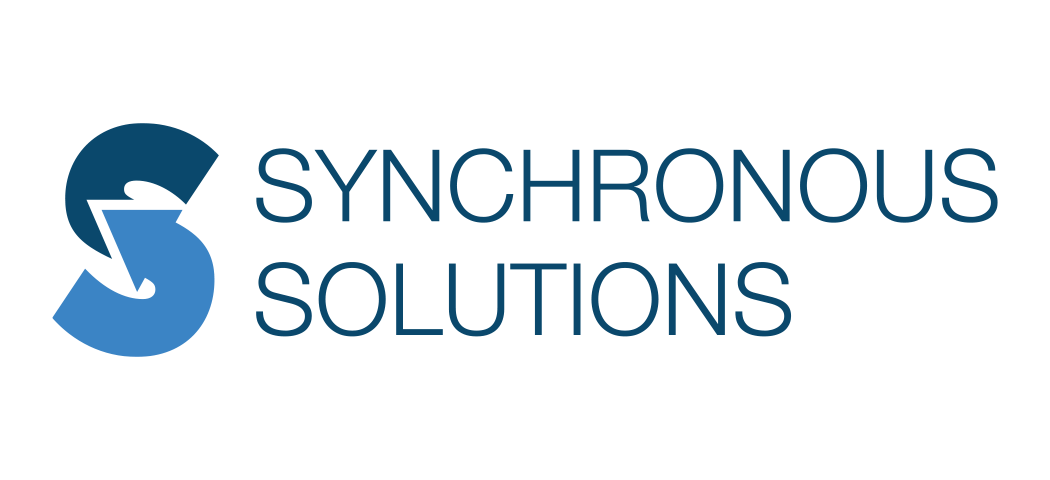
By: Mark Phelps, Principal, Synchronous Solutions
The concepts of responsibility and accountability often overlap. While they seem similar, they play distinct roles in fostering trust, clarity, and progress. Let’s explore the subtle but important difference between responsibility and accountability, and why distinguishing between the two is crucial for building trust and achieving success.
What is Responsibility?
Responsibility refers to the duties or obligations assigned to someone. It is the act of responding to a need, task, or situation. When someone is responsible, they are expected to handle tasks or take action to address specific challenges or goals. Responsibility focuses on the actions taken in the present moment — how someone responds to the needs and expectations set before them.
Let’s explore an example. Anthony’s direct report, Nick, is constantly lashing out during meetings. Yelling at his coworkers is a common occurrence. His poor attitude and behaviors are negatively impacting the team, and the progress of their ongoing projects together. Anthony regularly has conversations with him about these behaviors and tries to get him to understand how his behaviors are impacting others, not to mention it’s making him look bad. These conversations are the actions of responsibility. Anthony is being proactive in speaking with Nick, and encouraging him to self-reflect and change his behavior. This is his responsibility as a manager.
Responsibility is more about doing — engaging with the task at hand and addressing immediate concerns. However, it’s the next step that adds a layer of depth to the process: accountability.
What is Accountability?
While responsibility is about doing, accountability is about documenting and tracking the actions taken to fulfill those responsibilities. Accountability involves providing an account of what has been done, creating a record of actions, and ensuring that there’s clear communication regarding those actions. This could be through written reports, checklists, sign-offs, or any form of documentation that clearly outlines what was done, when, and with whom.
It’s not enough to simply claim you’ve had several conversations with Nick — accountability requires you to provide a clear record of those interactions. For example, if you’ve had 17 conversations with someone, you must be able to prove it by offering a written log that details the conversations, including what was discussed, agreed upon, and what the expectations were. Without this documentation, it’s simply hearsay.
Without accountability, there’s no clear record, no proof of your actions or outcomes. This is especially critical when trust is at stake. You need to show that you’ve followed through, met expectations, and stayed consistent in your actions. Accountability builds the trust that responsibility alone cannot.
Why Does Accountability Matter?
Accountability matters because it builds trust. Without showing a hard documented path, it’s all just hearsay. In any organization or relationship, trust is a foundational element, and accountability is a primary way of establishing and maintaining it.
When someone makes a commitment and follows through — and when they can provide a documented account of their actions — it reinforces their reliability. On the other hand, when commitments are not met or when there’s no clear record of what has been done, trust is eroded. This simple act of documenting one’s actions creates transparency and assures others that commitments are being met.
In the context of leadership and management, this distinction becomes even more crucial. A leader must not only take responsibility for their actions and decisions but also hold themselves accountable for the outcomes of those actions. This transparency and documentation help leaders to reflect on their progress, identify areas of improvement, and build stronger relationships with their teams.
Accountability and Trust in the Workplace
In leadership roles, accountability is especially important. Past behaviors and perceptions can create friction, and accountability helps to clarify and redefine those perceptions.
For example, in the story above, there is low trust in a colleague, Nick. The responsibility of the manager is to engage with Nick, but it’s the accountability piece that helps rebuild that trust. By documenting interactions, ensuring that agreements are clear, and showing a commitment to follow-through, trust can gradually be restored. Accountability, in this case, serves as a tool to make the intangible concept of trust more concrete.
Moving from Accountability to Ownership
Once accountability is in place, it’s easier to transition to ownership. Ownership is about taking full responsibility for outcomes and results. It’s about looking at the documented results of actions taken (accountability) and deciding what changes are necessary. It’s the next step beyond simply tracking actions and involves actively owning up to mistakes or failures and committing to improvement.
Once accountability is established, the individual can reflect on their behavior, such as their interactions with Nick, and take ownership of the outcomes. If the conversations with Nick haven’t been effective, ownership means not just recognizing that the conversations happened but also analyzing why they weren’t successful and figuring out how to improve them moving forward.
Some Final Thoughts
In summary, responsibility is the proactive act of engaging in tasks and addressing needs, while accountability is the practice of documenting and providing proof of those actions. Accountability serves as the bridge that connects responsibility with trust and ownership, providing the transparency necessary for growth and success.
By distinguishing between these concepts, individuals and teams can foster a more trustworthy and effective environment. Whether you’re a leader, a team member, or simply someone looking to improve your personal accountability, recognizing the importance of both responsibility and accountability will help you achieve greater clarity and success in any role.
What are your Top 5 Business Challenges? See the checklist here.


